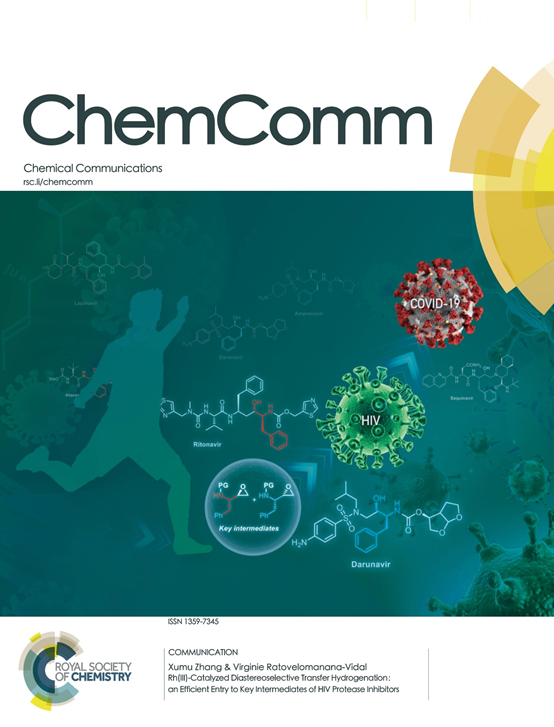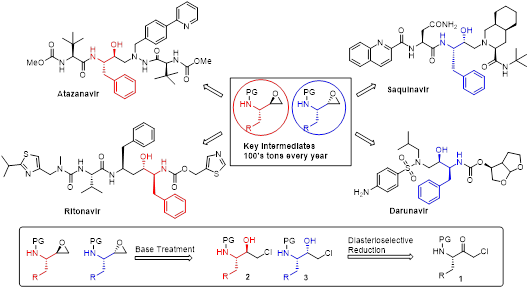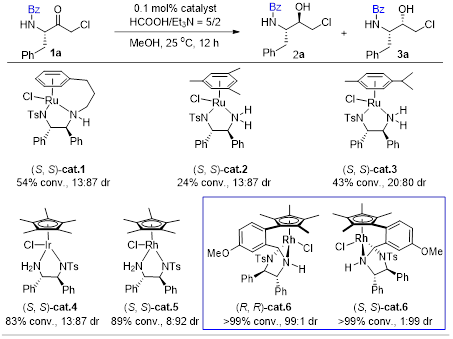Researchers find improved method for synthesizing life-saving medicine
2020-03-06
Research led by Southern University of Science and Technology (SUSTech) could lead to significantly improved HIV-inhibiting medication and the improvement of lives for millions of people around the world.

Chair Professor Xumu Zhang from the Department of Chemistry at SUSTech has worked to develop an efficient synthetic method for the synthesis of key intermediates of anti-HIV drugs. The high-impact journal Chemical Communications (IF = 6.164) published the paper under the title, “Rh(iii)-Catalyzed diastereoselective transfer hydrogenation: an efficient entry to key intermediates of HIV protease inhibitors.” This research was conducted with teams from Université Paris Sciences et Lettres (PSL University).
HIV infections are one of the world’s greatest public health challenges, particularly in less developed areas of the world. In 2018, over 37.9 million people continued to suffer from this disease around the world, with just 23.3 million having access to antiretroviral drugs. HIV-1 protease inhibitors (HIV PIs) are considered to be among the most promising chemotherapeutic agents against HIV infections. Several antiretroviral drugs have been approved by the United States Food and Drug Administration (US FDA). They have also been recommended by the World Health Organization (WHO) as essential for a basic health system.

The development of a highly efficient synthetic route to HIV PIs is vital to reduce health care costs and thereby to increase their use in poverty-stricken areas of the world. So far, traditional synthetic methods tend to have problems like poor selectivity (only obtaining one of the isomers), low yield, harsh reaction conditions, and large waste emissions.

The researchers conducted an iterative process on commercially available TsDPEN-derived ruthenium (Ru), rhodium (Rh), and iridium (Ir) complexes. Through several rounds of testing, the scholars determined the optimal mix of solvents, formic acid, and triethylamine for the reaction. The prime catalytic reaction resulted in a 99:1 dr and a conversion efficiency of 97% with 0.02% catalyst loading.

Their scaled-up research results fully support small-scale outcomes. As such, the team is working with domestic partners to develop high-quality and low-cost antiretroviral HIV drugs with fully-independent intellectual property rights. The researchers have found a practical and straightforward method of efficiently accessing both diastereomers of the corresponding alcohols at low catalyst loading. This development could lead to cheaper HIV PIs and improve the lives of millions of people around the world.
SUSTech-HIT joint-trained doctoral student Fangyuan Wang is the first author of the paper. Chair Professor Xumu Zhang and PSL Chimie Paris Institute of Chemistry for Life and Health Sciences (I-CLEHS) Professor Virginie Vidal. Chair Professor Xumu Zhang is indebted to the Shenzhen Nobel Prize Scientists Laboratory Project, SUSTech (start-up fund), Shenzhen Science and Technology Innovation Committee, the National Natural Science Foundation of China (NSFC), and the SZDRC Discipline Construction Program.
Background:
Chair Professor Xumu Zhang is currently the Dean of the SUSTech Institute of Biomedicine (Med-X). His research team is dedicated to the development of new pharmaceutical products and economical synthesis technology. The integration of these two fields can significantly reduce costs and improve product quality, which dramatically improves health care outcomes for society. Chair Professor Xumu Zhang is a global leader in asymmetric hydrogenation, and the chiral catalytic technology that he developed has been applied to the annual production of hundreds of tons of pharmaceutical intermediates.
Article link: https://pubs.rsc.org/en/content/articlelanding/2020/CC/C9CC09793G




